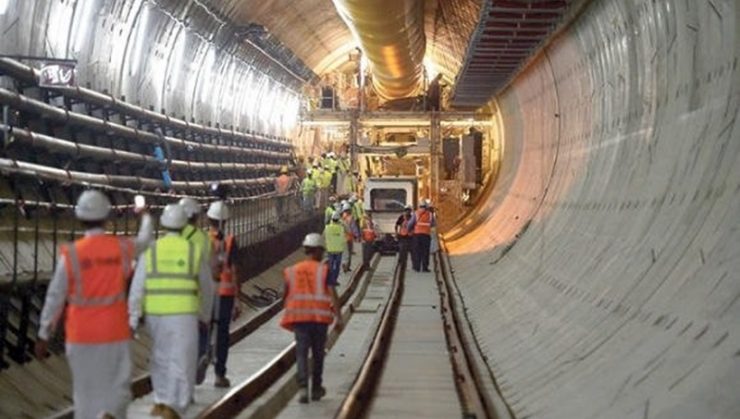THE INDONESIAN and Japanese governments signed the Exchange of Notes (E/N) regarding provision of yen loan, worth 140.699-billion-yen (about IDR14.5 trillion), for the “Jakarta Mass Rapid Transit (MRT) East-West Line Plan Phase 1” project.
According to a press release by the Japanese Embassy in Indonesia on Monday (05/13), 2024 said the signing was carried out between Japanese Ambassador to Indonesia Masaki Yasushi and Director General of Asia Pacific and Africa of the Ministry of Foreign Affairs Abdul Kadir Jailani.
On that occasion, Masaki stated that Japan had supported the expansion of the urban high-speed rail line connecting central Jakarta from north to south, which opened in 2019.
“The construction of the MRT East-West Line will increase passenger transportation capacity to the east, west, south, and north,” the ambassador stated.
Masaki also emphasized that the Japanese Government will cooperate actively in solving important problems in Indonesia, such as reducing traffic congestion in the Jakarta metropolitan area, improving the investment climate, reducing environmental impacts, and combating climate change.
Responding to this, Jailani expressed his gratitude for Japan’s unwavering support. Furthermore, the embassy stated that since the North-South MRT line opened in March 2019 with the assistance of the Japanese Official Development Assistance (ODA), MRT has become an important transportation infrastructure that supports economic activities and the daily lives of Jakarta’s residents.
Construction of a new line stretching from east to west and a comprehensive railway network will further lessen traffic congestion, improve the investment climate, reduce environmental impacts, and support the efforts to fight climate change.
This development will also provide the same safety, punctuality, and comfort as the existing route so as to ensure that more people can access public transportation.
In the meantime, Special Terms of Economic Partnership (STEP) will apply to the project, and Japanese technology will be used for the construction of underground tunnels, railway facilities, and signaling systems.
STEP was introduced in July 2002 to promote Japan’s visible aid via the transfer of Japanese superior technologies and know-how to developing nations. [antaranews/photo special]
















